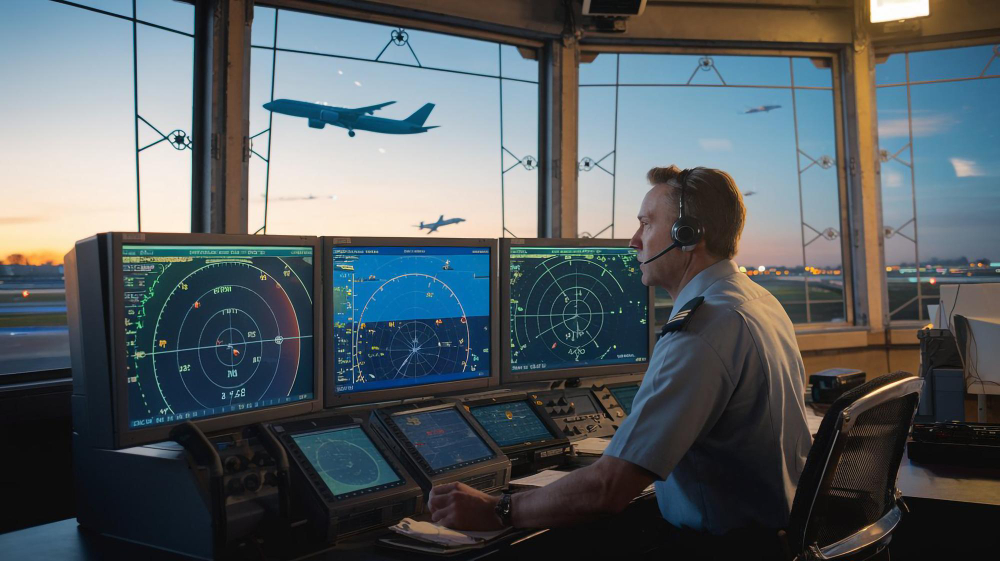
Surge in GPS Spoofing Threatens Aviation Safety in Middle East
GPS spoofing a cyber technique once confined to academic research and niche military applications has rapidly evolved into a widespread and dangerous threat. In 2024 alone, aviation operators reported hundreds of spoofing incidents, particularly across the Middle East and Southeast Asia. By manipulating satellite-based positioning systems, attackers are misleading aircraft navigation systems, causing pilots to lose situational awareness, systems to malfunction, and in some cases, flights to unknowingly breach restricted or hostile airspace.
The trend has grown so severe that several global aviation watchdogs and airlines are re-evaluating navigational resilience strategies. And this is not just theoretical: business jets, commercial aircraft, and even cargo flights have jeopardized safety, triggering international incidents, and exposing glaring weaknesses in civil aviation’s reliance on GPS.
Technical Description
At its core, GPS spoofing involves the transmission of fake satellite signals stronger than those from real satellites causing a GPS receiver to accept and process incorrect positioning data. The spoofing system essentially impersonates legitimate GPS satellites, overriding actual signals to insert false coordinates.
Unlike GPS jamming, which simply blocks reception, spoofing is more insidious. Aircraft systems remain operational, but they rely on incorrect location data, which can lead to:
- Navigation drift or deviation from flight plans
- Failure in onboard systems that depend on synchronized location/time data
- Miscommunication with air traffic control, especially in restricted zones
- Potential breaches into foreign airspace, escalating political risk
Aircraft affected in recent reports lost GPS position, experienced failures in inertial reference systems (IRS), or required manual navigation corrections. In many cases, pilots were unaware of the spoofing until they received warnings from ATC or noticed inconsistencies in onboard instruments.
While GPS spoofing is not new, its operational use in recent years has surged in scale and complexity.
- 2013: A pivotal moment came when researchers at the University of Texas at Austin successfully hijacked a civilian drone mid-flight using spoofed GPS signals. This academic demonstration proved what many suspected—that GPS, without encryption or validation, could be a soft underbelly for many critical systems. (WIRED)
- 2019: Maritime reports from the Black Sea revealed anomalies in GPS readings. Several ships appeared to drift far from their actual locations. Analysts suspected Russian testing of spoofing tech, manipulating civilian GPS receivers by transmitting fake satellite signals at higher power.
- 2022: During heightened geopolitical tensions, aircraft flying near the Baltic region—including over Finland, Latvia, and parts of Poland—experienced significant GPS disruptions. Thousands of commercial flights reported navigation faults, especially near Russian borders, believed to be part of coordinated electronic warfare activity.
- 2023–2024: Fast forward to today, spoofing has become commonplace in contested airspace—most notably over Iraq, Iran, Syria, and parts of the Eastern Mediterranean. Reports confirm that aircraft are being fed falsified positional data, often placing them far from their actual location, in some cases near restricted military zones. These disruptions have led to flight diversions, rerouting, and increased workload for already-stressed air traffic control systems.
Impact
The implications of sustained GPS spoofing attacks are substantial and multifaceted:
- Flight Safety: Degraded situational awareness can lead to mid-air conflict, Controlled Flight Into Terrain (CFIT), or airspace incursions.
- Operational Complexity: Pilots must resort to manual navigation, increasing workload and error likelihood.
- Economic Strain: Delays, diversions, and extra fuel usage have direct financial consequences for airlines.
- Geopolitical Escalation: When spoofing draws civilian aircraft into military zones, there’s potential for diplomatic incidents or worse.
- Loss of Passenger Trust: Recurring technical failures tied to GPS affect public confidence in the reliability of international air travel.
IOC and Context Details
| Topics | Details |
|---|---|
| Tactic Name | Initial Access, Impact |
| Technique Name | GPS Spoofing |
| Sub Technique Name | Satellite Signal Manipulation |
| Attack Type | Navigation Deception, Signal Substitution |
| Targeted Applications | Aircraft GPS/IRS systems |
| Region Impacted | Middle East, Southeast Asia, Eastern Europe |
| Industry Impacted | Aviation, Maritime Logistics, Defense Logistics |
| IOC’s | NA |
| CVE | CVE-2024-48887 |
Recommended Actions
- Audit and Revoke Suspicious Sessions: Regularly monitor active sessions and revoke any that appear unauthorized.
- Implement Conditional Access Policies: Enforce policies that require compliant devices and trusted locations for access.
- Educate Users: Train employees to recognize phishing attempts and the risks of installing unverified browser extensions.
